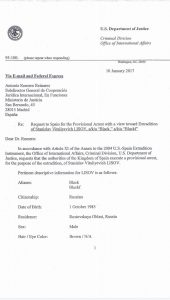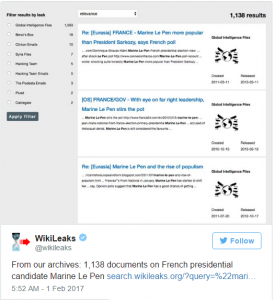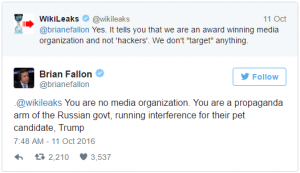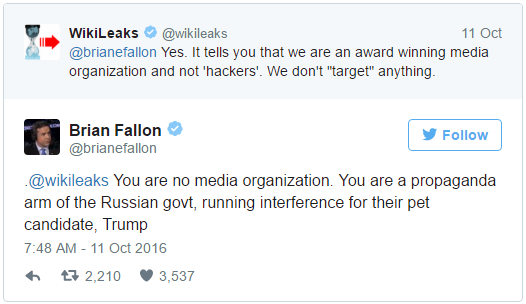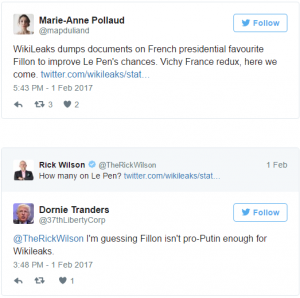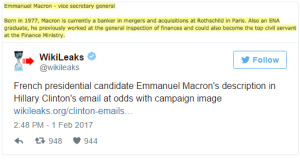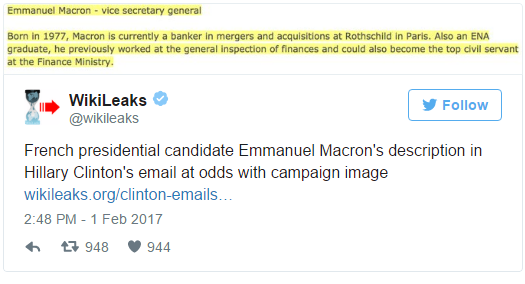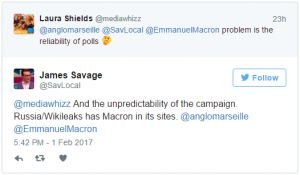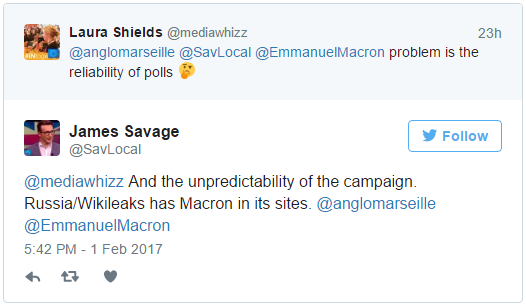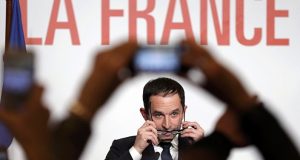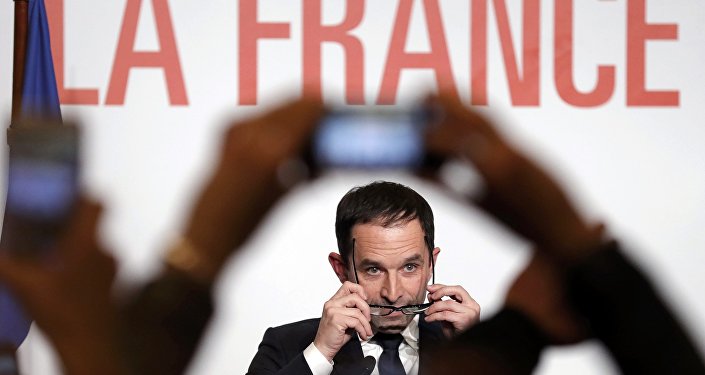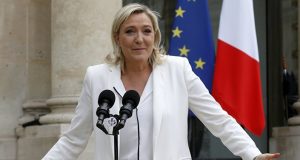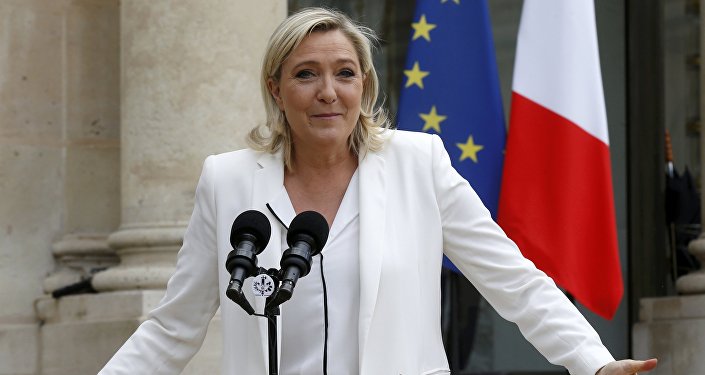WikiLeaks reminded on Twitter that its public archives contain thousands of documents related to French presidential candidates Francois Fillon, Marine Le Pen and Emmanuel Macron.
All the three candidates have already been at the center of political scandals in France.
Le Pen and Fillon are expected to lead during the first round of the French presidential election, which will take place on April 23, with the run-off scheduled for May 7. Both candidates have faced allegations of misconduct.
Fillon has been hardest hit, with the conservative leader the subject of an investigation amid allegations his wife and children received around $1.07 million in public funds for alleged “fake jobs” while working as parliamentary aides and assistants.
As for Le Pen, OLAF, the European Union’s anti-fraud watchdog, has demanded her to pay back $365,000 in EU allowances, accusing her of breaking EU rules by using the institution’s money to pay for two assistants who were carrying out non-parliamentary work.
Fueling the fire, WikiLeaks said on Twitter it has 1,138 documents mentioning Le Pen and 3,630 documents mentioning Fillon.
Cognitive dissonance was the very first reaction by some commentators and social media users. Previously, representatives of United States Presidential candidate Hillary Clinton and US intelligence have accused WikiLeaks of being a propaganda tool for the Russian government.
Similar accusations have repeatedly been voiced against Fillon representing The Republicans party. The candidate is known for his pro-Russian stance, especially on the matter of sanctions. National Front’s Le Pen has also been often regarded as a “Kremlin agent,” especially after she said that if elected France would recognize Crimea as part of Russia. As a result, some conspiracy theorists made up their minds that one “Kremlin agent” was attacking the other two.
Since the first tweet was about Fillon, some Twitter users decided that “pro-Russian WikiLeaks” attacked Fillon in order to restore “Vichy France” with Le Pen at the top.
“You have to accept that in principle every email that is sent can be pirated and made public with the aim of destabilization,” the minister noted.
Moreover, the Foreign Policy magazine published an article voicing concerns that WikiLeaks may be used to interfere with the French election.
The recent publications by WikiLeaks have stoked “fears among European security officials that WikiLeaks will repeat its US electoral influence performance in France – and perhaps elsewhere in Europe,” the article read.
“Some even worry that the propaganda apparatus will partner again with operatives with the aim of tilting the outcome of elections in favor of Kremlin-friendly candidates,” it added.
Nevertheless, the WikiLeaks archives are unlikely to generate any new revelations on Fillon and Le Pen. All the documents have already been thoroughly examined, and nothing has been found to derail their presidential campaigns.
However, the documents can shed some light on what foreign politicians think, for example, about Le Pen.
In addition to concerns about her anti-immigration stance and “anti-Semitism,” emails from the hacked account of former Hillary Clinton’s campaign chairman John Podesta contain the following picturesque comparison: “The Le Pen are very close relatives of Trump, although they are much better educated.”
As for Macron, he is featured only in 30 documents of the archive. Surprisingly for those believing he is a victim of a “Russian hacker attack,” one document describes Macron almost as a “Russian agent.”
An analytical note from the Turkish ruling Justice and Development Party (AKP) mentioned Macron’s visit to Moscow, during which the candidate hinted at the possible removal of anti-Russian sanctions in the near future.

